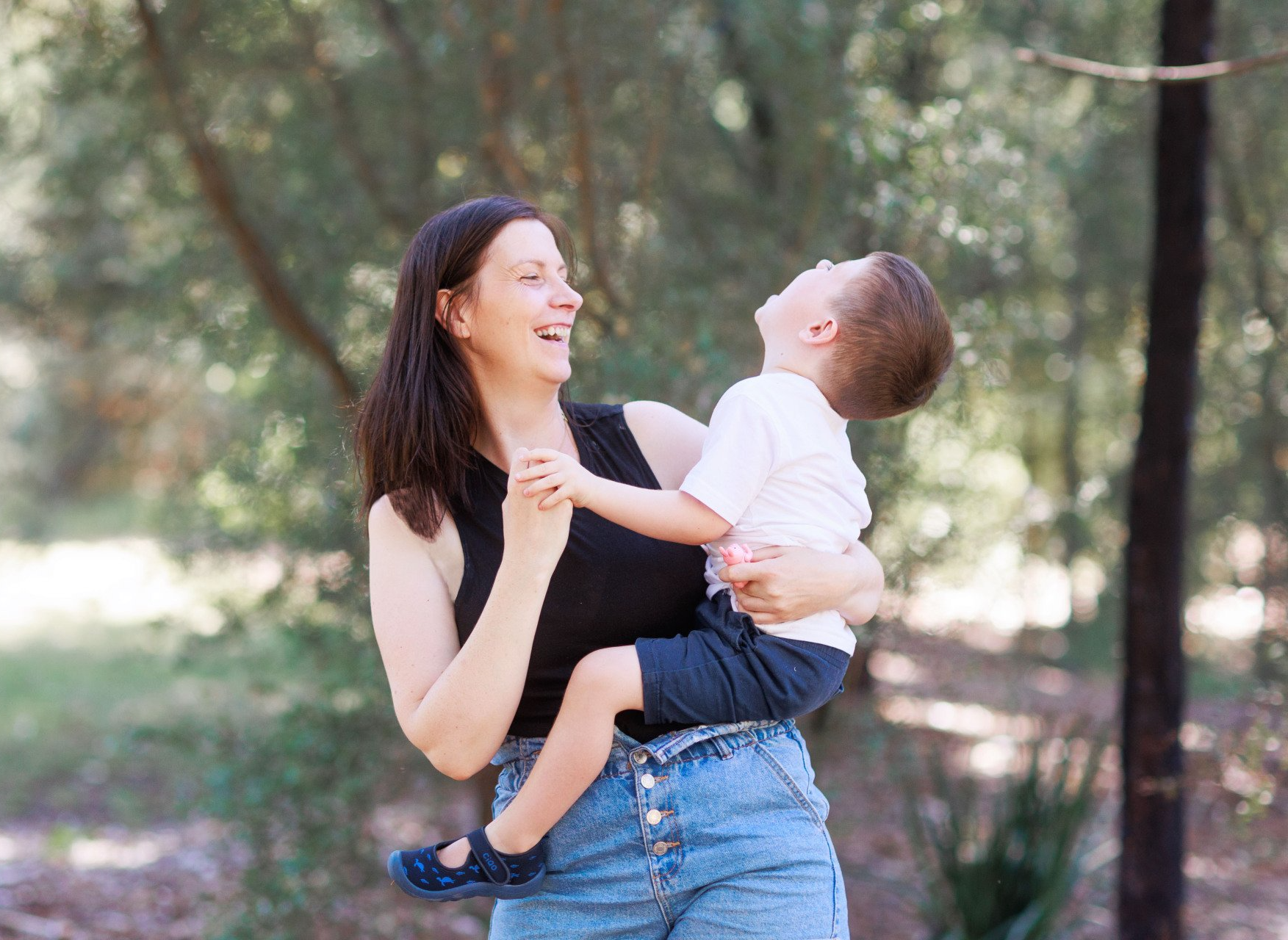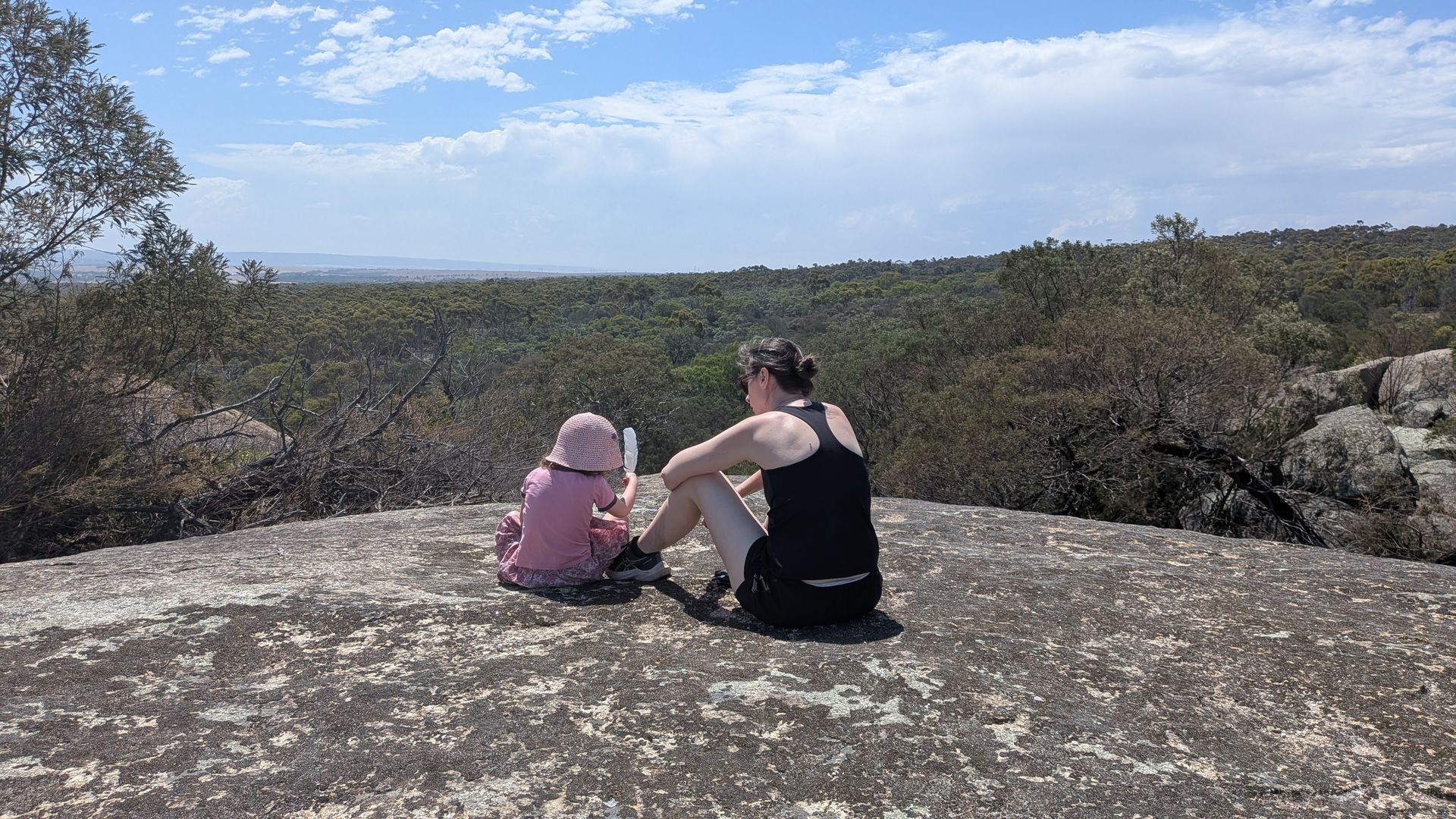How I got to here!
My journey to being a Mama & finally happy in my own skin!

I am a mama of two, a wife, a daughter, a sister, and a friend. I am an Irish expatriate living in Melbourne. I have been on this earth for 37 (almost 38 years). It is with a lot of work and reflection that I can honestly share, this has been my best year in life. I have grown to love myself, all of me, even the parts I am working to alter. Even typing this sounds a bit wishy washy and not something “old me” would ever say. But the old me was not happy in her skin. I was anxious, unsure of myself, angry, grieving, and lonely. That is not to say I am never any of these or any other negative emotions now, but I have learned that they are okay. It’s okay to feel sad, mad, lonely or scared. I have learned to get curious about the WHY? And the importance of compassion and self-care.
How did I get here? → BURNOUT!
I became a mama to my son in 2019, that was 9 years after losing my own mum. It was pre pandemic and I felt on top of the world. I love being a mum and I have learned so much. I can see now that as much as I love being a mama it is not necessary for me to do so at the expense of my own well-being.
I returned to work 4 months post-partum, my husband was in university, and we planned for him to be the primary caregiver. Lots of people asked me “how did I leave my son?’ They meant well but it did hurt a bit, I became defensive. I wonder now did my feelings of “not doing or being enough” drive me to push myself hard. I worked as a nurse, raced home, and gave the rest of myself to my son. I rarely did anything for myself. At the time I thought that was what a good mum did. Fast forward a year and just as my son was needing me a little less (weaned). HELLO Covid and lockdowns. The pandemic was scary, the eery feeling of commuting to work in lockdown through the empty streets, the fear in everyone you met, the lack of connection and social interaction with others, the heightened anxiety. It was a lot for everyone, everywhere. A few months in and for me something finally gave, my anxiety increased so much, that my GP prescribed a beta blocker temporarily for my symptoms. I had anxiety for years, but this was different. I felt the pressure to get it together in a different way, it was not just about me, it was affecting my family.
I started working with a personal development coach. I looked at myself, really looked deep and made a commitment to start showing up for myself. Quite quickly I was seeing the benefits and was feeling more energised and motivated. My interest was piqued in how this was happening and why? So naturally when recovering from burnout, with a toddler at home in the middle of a pandemic, I decided to study! I commenced a post grad in Positive Psychology in February 2021 at the same time as learning I was pregnant. You would expect given my recent mental health challenges this might be a tipping point, thankfully not. I was applying the tools that I was learning about, to my life and was able to maintain my equilibrium. I want to add here that the support of my family, friends and colleagues was paramount to me juggling my endeavours. I loved what I was learning and applying to my own life. It lights me up to learn about wellbeing and understanding why we are the way we are.
Fast forward again and I completed my post grad two months before my baby’s arrival. On finishing study, I took annual leave to spend 1:1 time with my son and to prepare for more changes. I moved slow, I was gentle with myself, and I enjoyed the time I was able to spend with my family and friends. The fact that we were in another lockdown was something I was aware of, and I prepared as best I could in a calm and practical way. Looking back now, the change in my attitude and mindset last year was colossal. My little girl was born in early October, I had a positive experience and we returned home to our own little cocoon. We adapted in our own way, taking it slow and learning as we went. There was love, connection and joy, at the same time there were big emotions, mistakes, and repairs. I was still applying the tools I had learned but was noticing my old friend and harshest critic “anxiety” was creeping in. With the awareness I had gained from study and reflection I started to prioritise myself and my needs again. I completed short courses to support my knowledge for wellbeing tools. I started swimming in the bay with a friend (all weathers & seasons). My family and I enjoyed the benefits of my cup being filled.
Upon reflection, I wished that it wasn’t this way for families, this expectation, this judgement and stress. My desire to learn more returned. It was then I found the Jai Institute for Parenting and applied for their coaching program. When my little girl was 3 months old, I started this course. I worked through the weekly modules: the healing and awareness that I had was LIFE CHANGING. I was able to dig deep with curiosity and without judgement of my own story. I was supported by my coach and my classmates. The content was engaging and relevant to my life past and present. We worked through attachment science, the nervous system, mindsight and brain science, emotional intelligence. How to have empowered conversations and exploring anger and healthy aggression. While working through the modules I was practising applying the new tools I was learning to support myself and my kids. I had more awareness of where my kids are developmentally and was able to soften my expectations of them. When triggered I was able (mostly) to pause and respond instead of reacting. I became more aware of what was triggering me and why. With my understanding came more compassion, for myself, my kids and those closest to me.
My relationships have changed for the better. I love the connection and understanding I have with my kids. Do I still make mistakes? Of course, I still lose it and shout or snap. I feel triggered and angry sometimes, but it is how I manage the aftermath that has had the biggest impact for me. I can look whoever has been on the receiving end of my behaviour in the eye and make a meaningful repair. I can forgive myself and move on. My commitment to this work is enduring.
I recently completed the coaching program and became a certified Parent coach with Jai. I have launched my own coaching business Reaching for Calm. I am learning new skills like marketing, using social media for business, and using Canva, Mailchimp and PayPal. I am so proud of myself for continuing no matter how challenging I find it. I am recognising and pushing past my limiting beliefs. I am motivated and excited to help people make the changes I did. If my story resonated with you and you would like to know more or think you would like to work with me, reach out on my website www.reachingforcalm.com. You can also find me on Facebook at Reaching for Calm or Instagram @reachingforcalm. I believe wholeheartedly in this work and the need for it. I believe not only are our children worth the effort but so are we.

